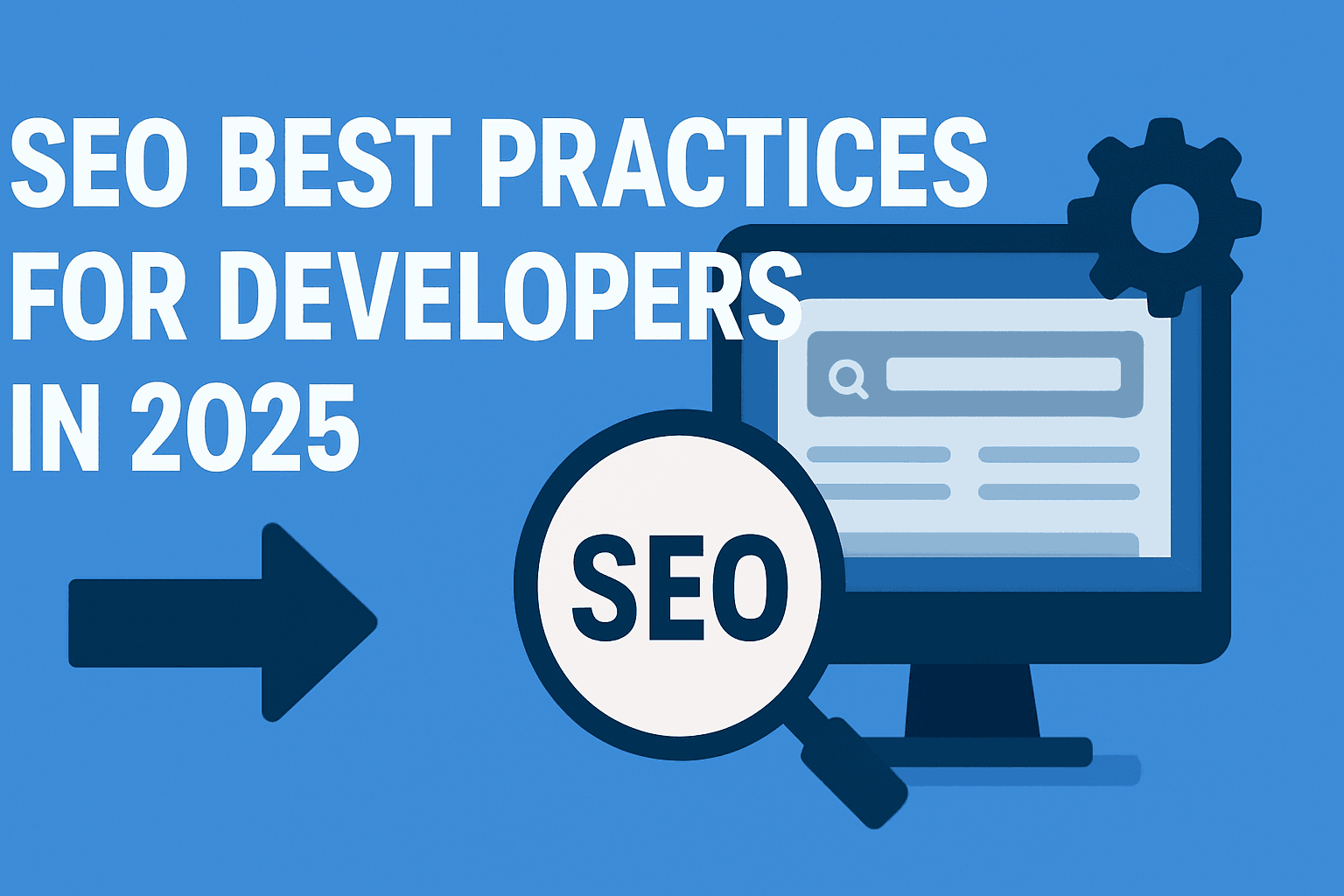SEO Best Practices for Developers in 2025
Discover the essential SEO best practices for developers in 2025. Learn how to align SEO with business goals, leverage AI, create product-led content, and optimize for changing search behaviors to thrive in an AI-driven digital landscape.

SEO Best Practices for Developers in 2025
As we step into 2025, SEO for developers is evolving rapidly alongside changes in search behavior, artificial intelligence, and user expectations. To stay ahead, developers must adapt their SEO strategies to not only optimize for traditional search engines like Google but also for AI-powered platforms, changing user intent, and the prevalence of zero-click searches.
1. Align SEO Goals with Business Outcomes
SEO is no longer just about rankings and traffic numbers—it's about driving real business impact. Developers collaborating with SEO and marketing teams should define clear goals that matter, such as increasing qualified leads, boosting revenue, or improving brand awareness. This sets a meaningful direction for all SEO efforts.
2. Embrace Productized, Interactive Content
The rise of "product-led" pages—interactive tools like calculators or generators—is reshaping the search landscape. Google increasingly favors content that offers practical utility over passive information. Developers should consider building such interactive experiences, as they attract and engage users effectively while ranking well.
3. Research Keywords Across Multiple Platforms
Keyword research now extends beyond Google to platforms such as YouTube, Reddit, and AI tools. Developers need to understand the diverse ways users search and engage with content. Leveraging autocomplete suggestions, AI query responses, and community-driven site discussions helps uncover natural language queries and long-tail keywords.
4. Decode and Match Search Intent Precisely
Analyzing the search engine results page (SERP) for target keywords reveals what users truly want. Developers should optimize content structure, format, and depth based on this insight. For example, Google may favor comprehensive guides, videos, or lists depending on the query.
5. Optimize Content for Clarity, Context, and Technical Excellence
Clear titles, logical headings, concise URLs, and semantic relevance are key. This extends to writing descriptive alt text for images and ensuring mobile responsiveness. These practices help both search engines and AI understand content better. Technical aspects such as crawl budget management, canonical tags, and fast page speed remain crucial.
6. Integrate AI Thoughtfully in Content Creation
While generative AI can accelerate content drafting and structuring, developers should infuse original experience and insights to maintain authenticity and comply with Google’s E-E-A-T (Experience, Expertise, Authoritativeness, and Trustworthiness) principles.
7. Build a Modern Citation and Link Profile
Traditional backlink building is now complemented by broader visibility across news sites, forums, social media, and AI content mentions. Developers can assist in ensuring proper structured data and schema markup that enhances brand signals to search engines and large language models (LLMs).
8. Keep Content Fresh and Consolidate Strategically
Regular updating and merging of overlapping or underperforming pages improves rankings and user experience. A well-maintained content library signals quality and relevance to AI and search engines alike.
9. Collaborate Across Teams
SEO success increasingly requires cooperation between developers, content creators, marketing, UX, and analytics teams. Shared goals and data-driven optimizations ensure the entire user journey from search to conversion is seamless.
10. Prioritize Local and Video SEO Where Applicable
For local businesses, optimizing Google Business Profiles and adapting to local search nuances greatly impact visibility. Video SEO, including livestreams, is booming and offers high engagement potential, often ranking quickly on search results.
Conclusion
SEO in 2025 demands a multifaceted approach blending technical proficiency, strategic content planning, and responsiveness to AI-driven changes. Developers who embrace evolving best practices—from building product-led pages to managing brand presence across AI platforms—will set their projects up for sustainable success. Remember, SEO is not just about chasing clicks but building meaningful, trusted digital experiences that serve users and business goals alike.
Start adapting today, keep learning, and you’ll thrive in the dynamic SEO landscape of 2025 and beyond.
